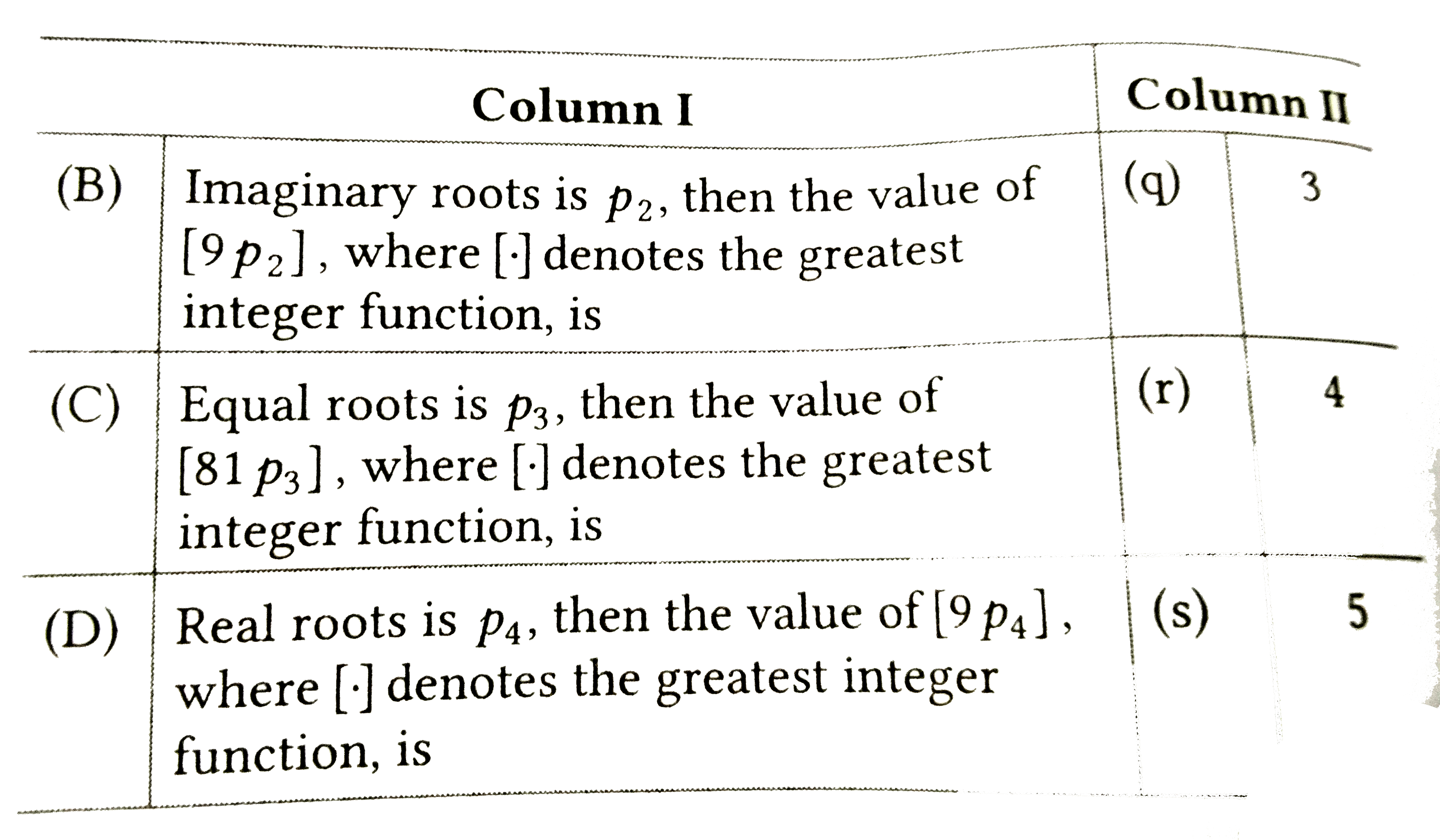Four numbers are chosen at random (without replacement) from the set {1, 2, 3, ....., 20}. Statement-1: The probability that the chosen numbers when arranged in some order will form an AP Is . Statement-2: If the four chosen numbers from an AP, then the set of all possible values of common difference is {1, 2, 3, 4, 5}.
P(4 are in AP) =
option 2 is correct
Topper's Solved these Questions
Similar Questions
From set S = {1, 2, 3, 4, 5, 6 ....... , 20} four numbers are chosen without replacement.
Statement-1 : The probability that the chosen numbers when arranged in some order will form an AP is 185
Statement-2 : If the four chosen numbers form an AP then the set of all possible values of common difference is {1,2,3,4,5} .
View SolutionThree numbers are chosen at random without replacement from {1,2,3,....10}. The probability that the minimum of the chosen number is 3 or their maximum is 7 , is:
View SolutionTwo integers xandy are chosen with replacement out of the set {0,1,,2,3,.....10}. Then find the probability that |x−y|>5.
View SolutionTwo numbers a and b are chosen at random from the set {1,2,3,4,...,0} with replacement. The probability that the equation x2+√2(a−b)x+b=0 has


View SolutionThree numbers are chosen at random without replacement from {1, 2, 3, ...... 8}. The probability that their minimum is 3, given that their maximum is 6, is (1) 38 (2) 15 (3) 14 (4) 25
View SolutionThree numbers are chosen at random without replacement from {1, 2, 3, ...... 8}. The probability that their minimum is 3, given that their maximum is 6, is (1) 38 (2) 15 (3) 14 (4) 25
View SolutionTwo integers x and y are chosen with replacement out of the set {0, 1, 2, . . . 10}. The probability that |x - y| doesn't exceed 5 is
View SolutionTwo numbers b and c are chosen at random with replacement from the numbers 1, 2, 3, 4, 5, 6, 7, 8 and 9. Find the probability that x2+bx+c>0 for all x∈R.
View SolutionTwo integers xandy are chosen with replacement out of the set {0,1,,2,3,10}. Then find the probability that |x−y|>5.
View SolutionThree different numbers are selected at random from the set A=(1,2,3,....,10). The probability that the product of two of the numbers is equal to the third is
View Solution